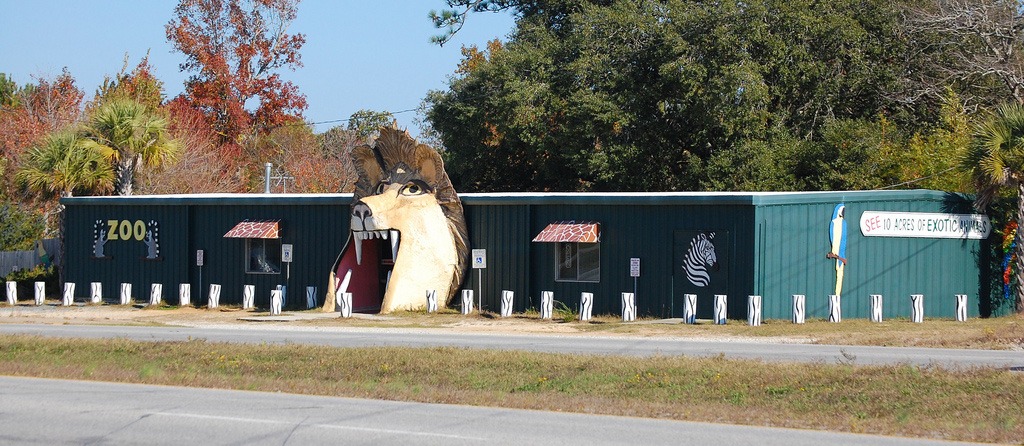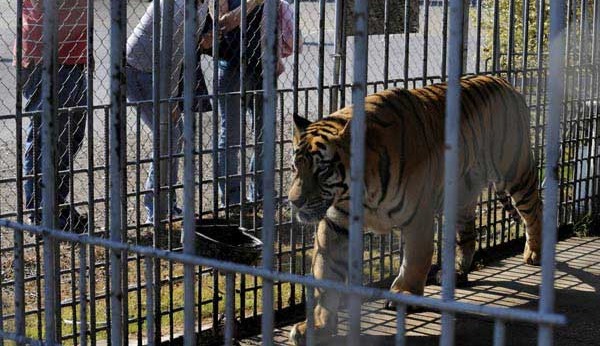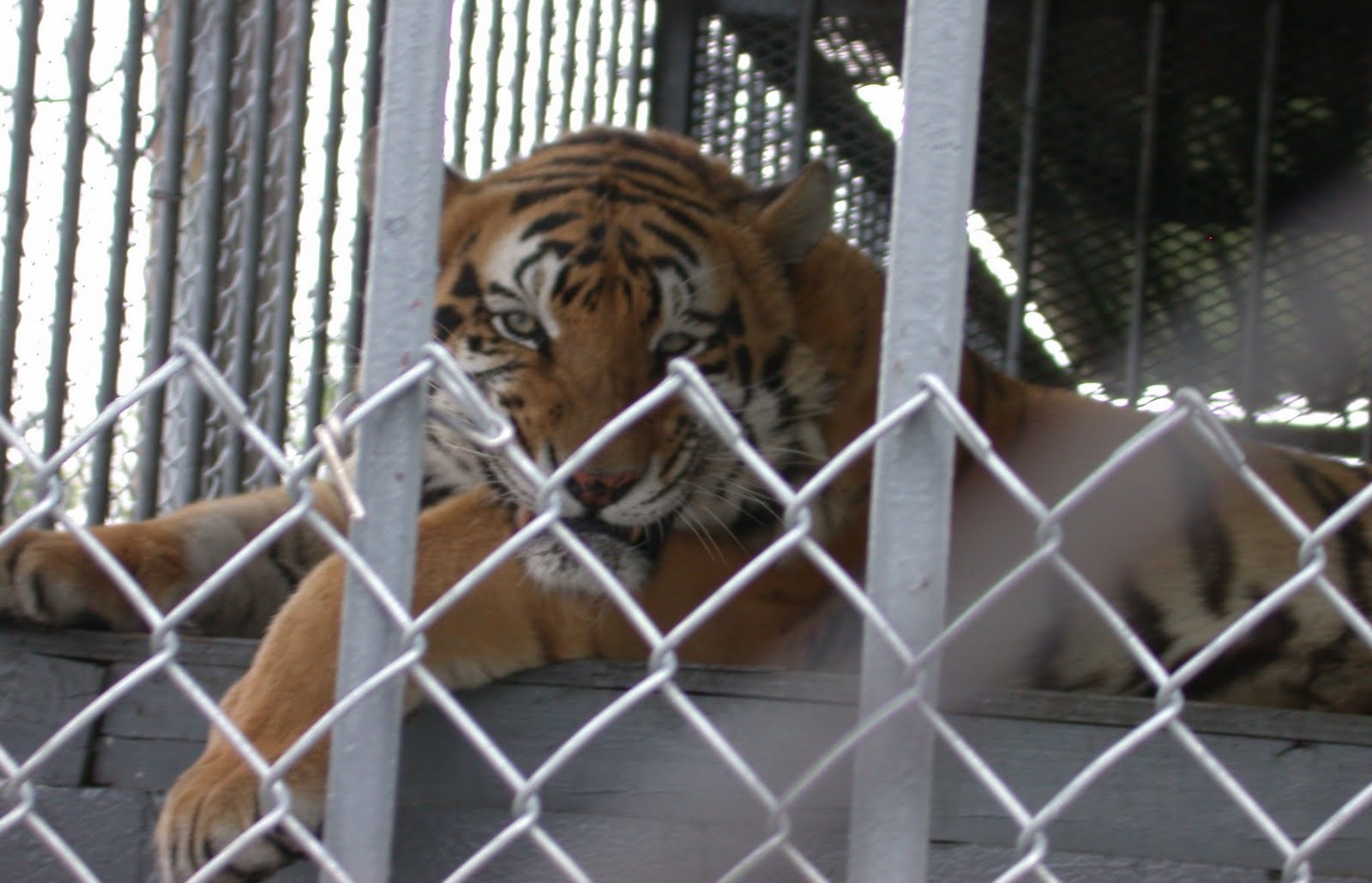Eliminating Roadside Tiger Attractions
Roadside zoos are collections of domestic and often exotic animals in cages used to lure passing motorists to stop and see, feed or play with the animals. They became popular in the 1950s as the automobile became the preferred mode of transportation. Stocked initially with farm animals and native wildlife, they offered anything from donkey rides to snake pits. When the zoo animal breeding binge began in the 1960s, exotic animals, as they were called, became available from animal dealers and auction houses. Tigers, the largest and most recognizable of the big cats, became a prize attraction. Today there are more than 3,000 roadside zoos in 44 states, and while not all have tigers, those that do usually have more than one.

Not Zoos
Although they call themselves zoos, they are not accredited by the Association of Zoos and Aquariums (AZA) and therefore have no standards. What these facilities have in common are barren cages, inadequate food, water, shelter, and veterinary care. A fully grown, 500-pound tiger can be confined to a small space 24 hours a day for its entire life. The animals are also often crowded into conflict-prone groupings. A de-clawed tiger in a cage with tigers with claws cannot fight for food or defend itself. Because there are no food or nutrition standards, they are generally fed roadkill and garbage, and the absence of veterinary services results in premature deaths.

Not Sanctuaries
As these roadside tiger attractions grew in number and sophistication, many began to advertise themselves as sanctuaries when in fact, they are breeders or animal dealers. True sanctuaries do not breed, buy, or sell animals. They provide lifetime care, with large enclosures, proper nutrition, enrichment, and medical attention for their animals.
A variation on roadside zoos is any business that uses tigers to draw attention to their principal activities. Tony, the Truck Stop Tiger in Louisiana, is one such case. He has spent his entire life in small cell breathing diesel fumes 24 hours a day for the amusement of customers that stop for fuel. Tony died in 2017. Please do not patronize roadside zoos or phony sanctuaries.



